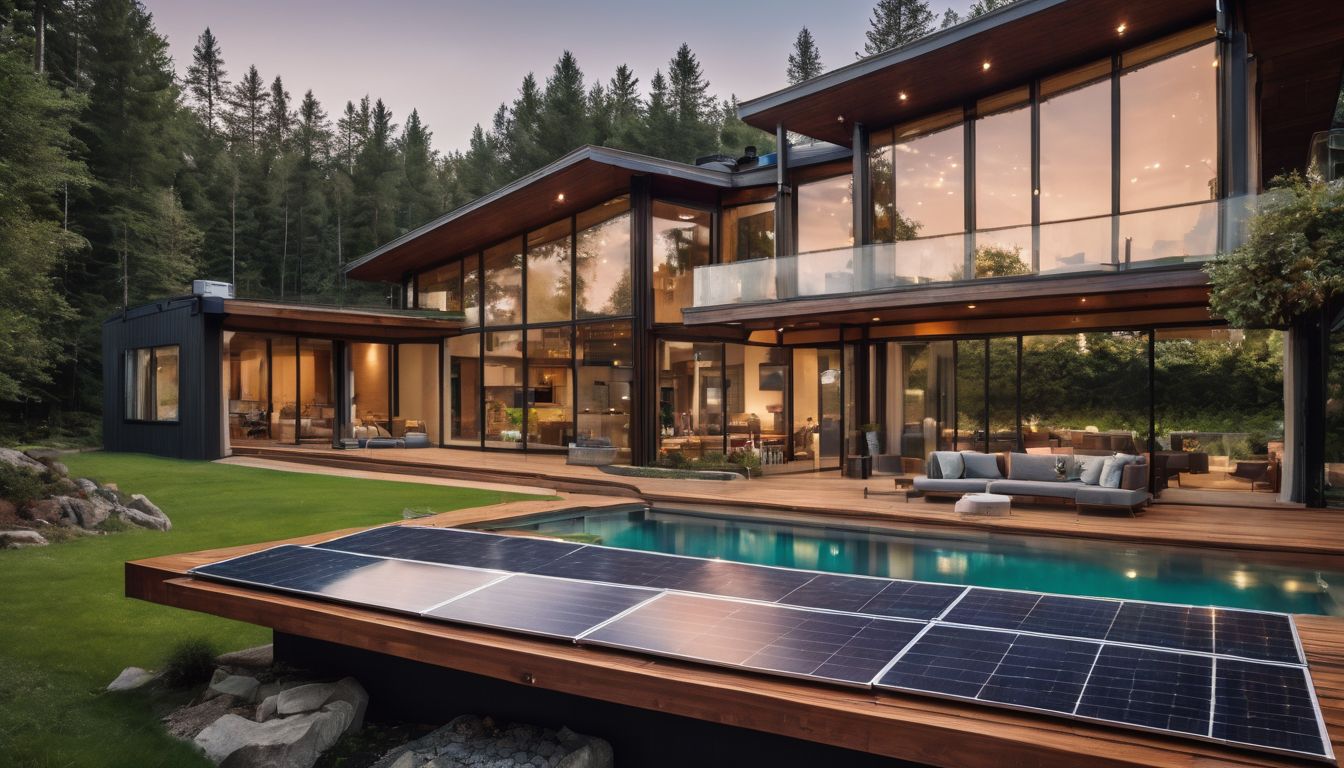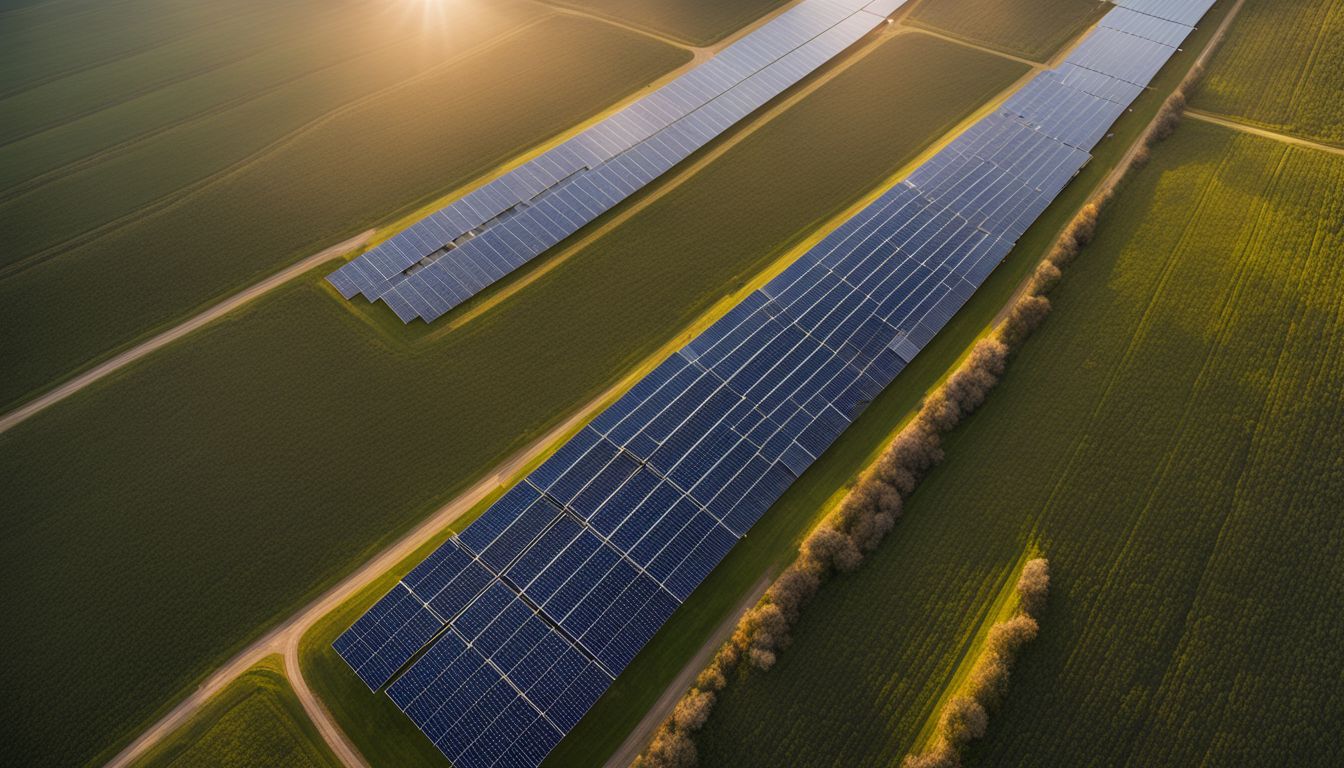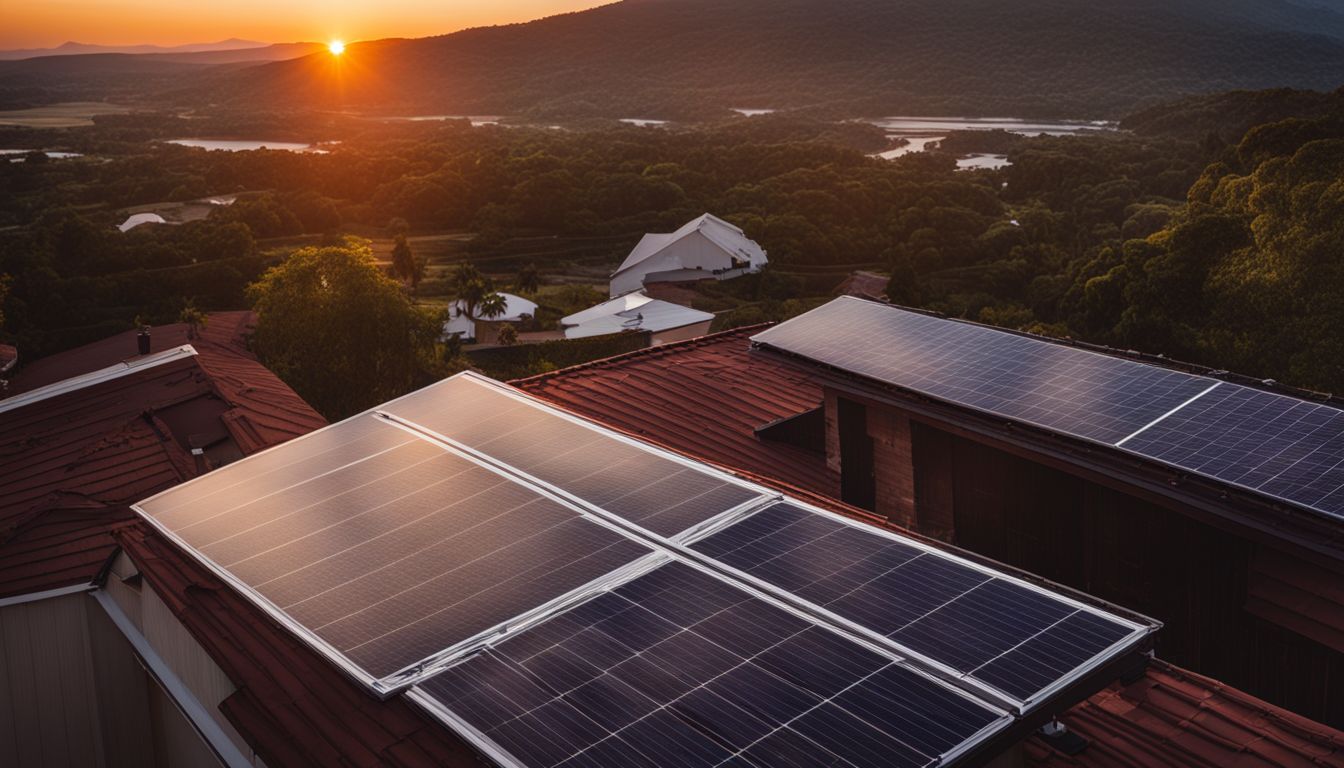Should I leave my solar panels on all the time?

Deciding whether to keep your solar panels on constantly can be puzzling. It's a fact that solar panels boast an impressive lifespan, often up to 30–40 years with minimal upkeep. This article unveils the ins and outs of solar panel management, helping you make informed decisions about their daily use.
Dive in for clear insights on optimising your solar energy setup!
Key Takeaways
- Solar panels can stay on all the time as they are built to last up to 30–40 years and do not need to be turned off. Regular checks are important for best performance.
- It's good to use chargers with safety features, like solar charge controllers, to stop batteries from overcharging and make them last longer.
- Covering solar panels when they're not needed can protect them from bad weather or dirt, but it usually isn't necessary because they are very strong.
- Overcharging batteries is bad; it can reduce their life. Smart devices that control charging help keep your battery safe.
- Heat buildup in solar panels might cause fires. Setting up correctly and watching for problems helps keep everything safe.
Understanding Solar Panels

Solar panels are clever devices that turn light from the sun into electricity. They work best when they face the sun directly and at certain angles, depending on where you live and the time of year.
This is because as the earth moves around the sun, we have different seasons, which change how much sunshine your solar panels can catch.
These smart panels can keep working for a really long time—most come with a guarantee to last 25 years. But even though they're built to be tough, they don't make electricity in the dark.
So overnight or during very cloudy days, they won't add power to your system. Solar energy is all about using sunlight in a good way, so if you’re thinking about getting these panels or already have them, it’s important to know this stuff!
https://www.youtube.com/watch?v=Yxt72aDjFgY
Can solar panels be left disconnected?

When solar panels are disconnected, they can no longer generate electricity. The impact of disconnection is that the energy produced by the panels cannot be utilised or stored for later use.
https://www.youtube.com/watch?v=vywtM_a6Yxs
The Impact of Disconnection
Leaving solar panels disconnected might seem harmless, but it can actually shorten their life. The longer they stay offline, the more likely they are to lose their ability to work well.
If you plan on not using them for a while, consider covering them up with something that doesn't let light through. This helps protect them and keeps them in good shape for when you need them again.
Solar panels are like any other piece of equipment—they need proper care. Isolators are important because they safely separate your panels from the grid without causing damage.
Following the correct disconnecting steps means your solar setup will be ready to go whenever you want to use it again. It's all about making sure your investment lasts as long as possible and works great every time you turn it back on!
The Need for Solar Panel Isolators
Solar panel isolators are important. They keep your system safe when you need to fix it or check it. You use a switch to turn off the electricity from the panels. This way, no power goes into your home or batteries while you work on them.Imagine there's an emergency like a fire. The DC isolator can cut off the solar panels right away. It stops power quickly to help keep everyone safe. Some places say you must have these switches for solar systems, so they're pretty necessary!
Should solar panels be covered when not in use?
Covering solar panels when not in use can help protect them from dust, debris, and potential damage. It also reduces the risk of overheating and prolongs their lifespan.
https://www.youtube.com/watch?v=hxj8mNzv8PI
Reasons to Cover Solar Panels
Solar panels are tough and built to last. They don't need much looking after, thanks to their strong design.
- Protecting from harsh weather: In places with severe weather like heavy snow or hail, a cover can keep your panels safe. This way, they won't get hit hard by bad weather.
- Keeping dirt off: If you live in a very dusty area or near lots of trees, covers help stop leaves and dirt from sticking to the panels.
- When not in use for long: If you're not going to use your solar system for a while, like during a long holiday, covering it could prevent damage.
- Preventing scratches or impacts: Covers can guard against birds pecking at the panels or balls hitting them if they're close to where people play sports.
- Reducing wear and tear: Even though they last a long time—up to 40 years—covering your panels sometimes might help them stay in good shape even longer.
Risks of Leaving Solar Panels On All the Time
Leaving solar panels on all the time can lead to battery overcharging, heat buildup, and fire hazards. Additionally, it can also have a negative impact on the lifespan of your batteries.
It's important to be aware of these risks and take the necessary precautions to ensure the safe and efficient use of your solar panels.
Battery Overcharging
Your solar panels work hard to charge batteries with the sun's power. But sometimes they can work too much. Overcharging happens if your battery gets more energy than it needs. This is bad for the battery and can make it not last as long.
Imagine filling a cup with water until it overflows—something similar happens to your battery when it overcharges. It gets filled with too much electricity, and this can hurt or even break it inside.
Lead-acid batteries and lithium batteries don't like being overcharged, so be careful! Use things like charge controllers to help keep your battery in good shape by stopping overcharging before it starts.
Heat buildup and Fire Hazards
Heat can build up in solar panels and create fire risks. This might happen if things go wrong with the system or if something near the panels catches fire. For example, birds could make nests under the panels that catch fire from too much heat.
If the electrical parts are not put in correctly, it can cause sparks and start a big fire.
Solar panel fires do not happen often, but they can be very bad when they do. These fires can hurt your house or building and everything inside. It's important to set up solar panels correctly and keep an eye on them to stop fires from happening.
Impact on Battery Lifespan
Leaving solar panels on all the time can reduce how long your batteries last. Solar batteries work hard to store energy from the sun. But if they keep getting charged after being full, it hurts them over time.
Think about lithium-ion batteries; they're common and can serve you well for up to 15 years. If you are always charging them, this time may become much shorter.
Taking care of batteries means keeping an eye on their levels. You don't want them to go dead or get too full; balance is key! Use smart chargers that stop charging at the right time to help your battery stay strong for longer.
It's like giving your battery a healthy diet—not too much, not too little—just enough power to do its job well without wearing out quickly.
Best Practices for Using Solar Panels
Regular monitoring of your solar panels and the use of chargers with safety features are essential best practices for maximising their efficiency and longevity. By implementing these strategies, you can ensure that your solar panels operate at their optimal capacity while minimising the risk of potential hazards.
Regular Monitoring
Regular monitoring of your solar panels is crucial for ensuring optimal energy production and cost savings. By checking for dirt and debris buildup, you can maintain peak efficiency.Utilizing a solar monitoring system can help optimise home energy consumption, potentially leading to significant cost reductions. Establishing open standards for the quality of solar monitoring systems, including device communication and plant sensor readings, is essential to ensuring maximum energy production and saving money.
Solar panel maintenance is vital to maximising their efficiency. CHOICE provides six simple steps to check if a solar PV system delivers maximum energy while emphasising the importance of regular monitoring for efficiency.
Using Chargers with Safety Features
- Solar charge controllers: These act as an on and off switch, regulating the charging process, preventing overcharging, and protecting batteries from deep discharge.
- Maximum Power Point Tracking (MPPT): This feature maximises the efficiency of solar panels by adjusting their electrical operating point for optimal power output.
- Pulse-Width Modulation (PWM): It maintains the battery at the highest possible state of charge while minimising stress on the battery, ensuring longer battery life.
- Overcharge protection: Chargers equipped with this feature prevent battery overcharging, safeguarding against damage and prolonging battery lifespan.
- Short-circuit protection: This feature prevents damage to both the charger and batteries in case of a short circuit, enhancing safety during operation.
Do you leave solar panels on all the time??
Yes, you can leave solar panels on all the time. They don't need to be turned off when not in use. Solar panels work continuously and produce energy as long as there is sunlight. There's no harm in leaving them on, but it's essential to keep an eye on their performance and cleanliness.
Regular monitoring ensures optimal efficiency and energy production from the solar panels.
Leaving solar panels on doesn't do any harm; they continue to generate electricity during daylight hours. However, it's crucial to monitor their performance regularly to ensure they are clean and functioning efficiently for maximum energy production.
Alternatives to Leaving Solar Panels On
Consider using smart charging controllers or manual charging methods as alternatives to leaving your solar panels on all the time. These options can help optimise energy usage and prolong the lifespan of your solar batteries.
Want to learn more about these alternatives? Keep reading for detailed insights and practical advice!
Smart Charging Controllers
Smart charging controllers, also known as solar charge controllers, are essential for regulating the current flowing from the solar panel to the battery. They act like an on-and-off switch, allowing power to pass when the battery needs it and cutting it off when it is full.
These devices play a crucial role in preventing overcharging, which can severely damage the lifespan of the battery. By effectively managing the flow of energy, smart charging controllers help ensure the efficient and safe operation of your solar power system.
These devices use technologies such as pulse width modulation (PWM) or maximum power point tracking (MPPT) to optimise charging efficiency while protecting your batteries from overvoltage and excessive current.
Manual Charging
Manual charging is crucial for maintaining the health and longevity of your solar power system's batteries. By periodically disconnecting the panels and manually initiating the charging process, you can prevent overcharging and extend the life of your batteries.
This practice also allows you to monitor the charging cycle closely, ensuring that your batteries are maintained at an optimal level without risking damage due to overcharging.
Remember, manual charging gives you greater control over the charging process, helping to safeguard your solar battery's capacity and overall performance. Additionally, it enables you to address any issues promptly and take corrective actions when necessary, contributing to a more efficient and sustainable use of your solar energy system.
Conclusion
In conclusion, the decision to leave solar panels on all the time requires careful consideration of potential risks and benefits. It's important to be aware of factors such as battery overcharging, heat buildup, and the impact on battery lifespan.
Following best practices like regular monitoring and using smart charging controllers can help maximise the benefits of solar energy while minimising risks. Ultimately, understanding how solar panels work and weighing their advantages against potential drawbacks is crucial in making an informed decision about leaving them on continuously.
For further insights on whether to keep your solar panels connected at all times, please read our detailed article, "Do You Leave Solar Panels On All the Time?".
FAQs
1. Is it best to keep my solar panels on non-stop?
Leaving your solar panels connected continuously allows them to collect energy from sunlight, which is a renewable source, providing you with a steady power supply.
2. Will my car battery stay charged if I use a trickle charger?
Yes, a trickle charger can keep your car battery at the right level by giving it a small amount of electrical current regularly.
3. Do different types of batteries affect how I use solar chargers?
Indeed, they do! Solar battery chargers work with various batteries, like lead-acid and lithium ones, but remember that each type—gel, VRLA, or others—may need its own charging method.
4. How does bad weather influence my solar panel system's performance?
Cloudy skies and extreme weather mean fewer sunbeams reach your photovoltaic cells, so the electrical power produced might drop; yet, systems are designed to cope with changing weather patterns.
5. What should I check when connecting my solar module to avoid damage?
Ensure wiring is correct and tight connections are secure; this helps prevent short circuits. Also, watch out for thermal runaway in batteries that could be caused by higher voltages than they're meant for.
6. Can setting up my home off-grid save me money in the long run?
You bet—it lets you rely less on the main power grid as you generate DC power independently through your very own photovoltaic system using clean energy from the sun.











